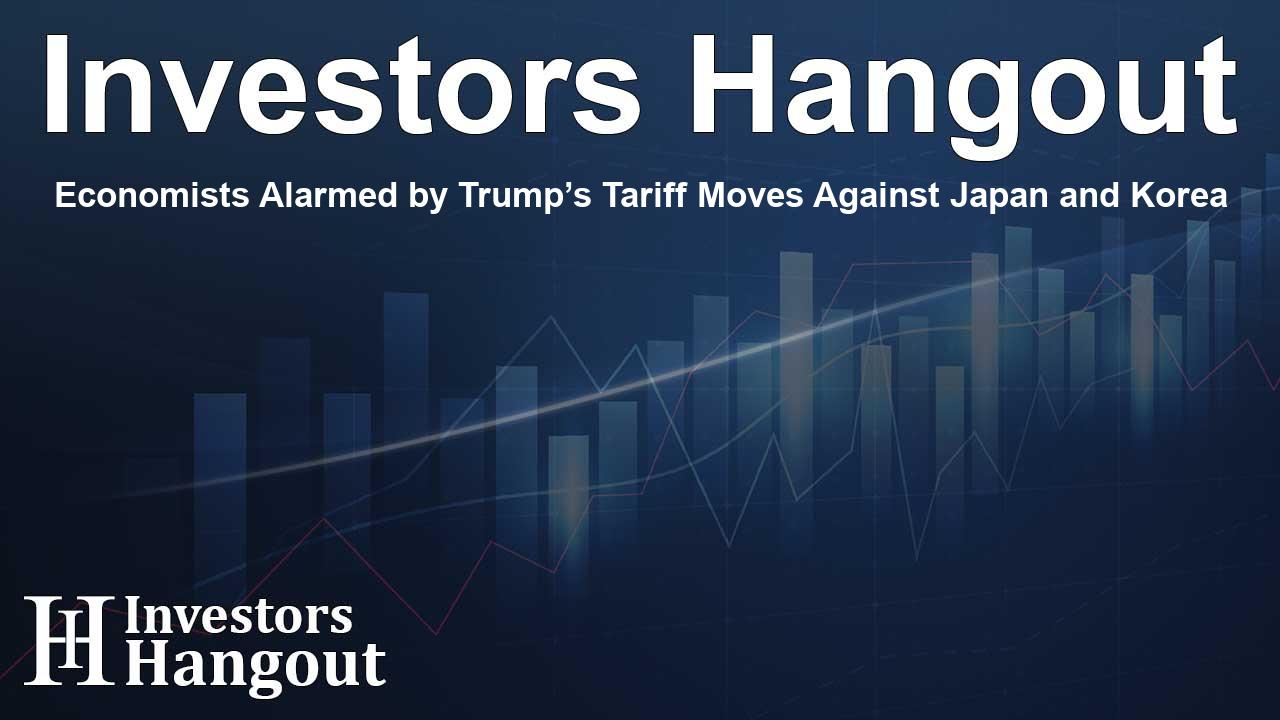Economists Alarmed by Trump’s Tariff Moves Against Japan and Korea

Trump's Tariff Decisions Stir Economic Concerns
President Donald Trump's announcement regarding a 25% tariff on imports from South Korea and Japan has raised eyebrows and sparked debate within economic circles. Many economists have expressed their disapproval, labeling the reasoning behind these tariffs as fundamentally unsound.
Economic Perspectives on Tariff Impact
Economist Peter Schiff has been vocal about his criticism of Trump’s letters to these East Asian nations, stating they reveal a profound misunderstanding of trade dynamics. He emphasizes that the average tariffs Japan imposes on U.S. goods are just below 2%, while South Korea's rates are even lower at under 1%.
The Trade Deficit Debate
Schiff further elaborates that the trade deficits experienced by the U.S. are largely due to the high demand for products from South Korea and Japan. He argues that these countries produce goods that Americans are eager to purchase, which exceeds the value of American goods that are appealing to these nations.
Concerns Over Tariff Effectiveness
Schiff warns that imposing tariffs in this manner is unlikely to yield the desired outcomes. He cites the declining value of the U.S. dollar as a significant factor affecting trade dynamics. According to him, as the dollar falls, the U.S. trade deficits could worsen, resulting in higher import costs.
Additional Insights from Economists
This sentiment has been echoed by another notable economist, Justin Wolfers from the University of Michigan. Wolfers points out that South Korea benefits from a free trade agreement with the U.S., which requires zero tariffs on most goods. He questions the efficacy of Trump’s tariffs, which are purportedly aimed at addressing trade barriers that do not exist with their current agreement.
Broader Economic Implications
Wolfers articulates that the existence of the free trade agreement makes the imposition of such high tariffs counterproductive. He highlights the implications of these tariffs, suggesting that they may inadvertently escalate trade tensions instead of resolving them.
The Role of Currency Fluctuations
The role of currency fluctuations is also a critical aspect of this discussion. Schiff maintains that only a significant decline in the U.S. dollar could lead to a reduction in trade deficits. A minor decrease in currency value, such as what is currently being observed, would instead raise import costs, leading to inflationary pressures and increased interest rates.
International Reactions to Trump's Policies
In light of the tariff announcements, Japanese Prime Minister Shigeru Ishiba has publicly expressed his disappointment, characterizing Trump’s decision as “truly regrettable.” This reaction underscores the international ramifications of Trump’s policies, highlighting the sensitivity of trade relationships.
Concluding Thoughts on Tariff Strategies
As the situation develops, economists remain skeptical about the administration's tariff strategies, questioning their effectiveness and long-term repercussions. The prevailing view among experts suggests that a reevaluation of trade policies may be necessary to foster healthier international economic relationships.
Frequently Asked Questions
What are the main criticisms of Trump's tariffs on Japan and Korea?
Economists criticize the tariffs for being based on flawed trade assumptions and not acknowledging existing trade agreements between the U.S. and these nations.
How do tariffs affect international trade relationships?
Tariffs can strain relationships by increasing costs for consumers and potentially leading to retaliatory measures from affected countries.
What alternative solutions do economists propose for trade deficits?
Experts suggest focusing on improving domestic production and negotiating better trade agreements rather than imposing tariffs.
How do currency fluctuations impact trade deficits?
Weakening currency can inflate import costs, worsening trade deficits. A strong currency often helps reduce these deficits.
What are the stakes for the U.S. economy concerning these tariffs?
The stakes include potential inflation, rising interest rates, and worsened trade relations, which could hinder economic growth.
About The Author
Contact Owen Jenkins privately here. Or send an email with ATTN: Owen Jenkins as the subject to contact@investorshangout.com.
About Investors Hangout
Investors Hangout is a leading online stock forum for financial discussion and learning, offering a wide range of free tools and resources. It draws in traders of all levels, who exchange market knowledge, investigate trading tactics, and keep an eye on industry developments in real time. Featuring financial articles, stock message boards, quotes, charts, company profiles, and live news updates. Through cooperative learning and a wealth of informational resources, it helps users from novices creating their first portfolios to experts honing their techniques. Join Investors Hangout today: https://investorshangout.com/
The content of this article is based on factual, publicly available information and does not represent legal, financial, or investment advice. Investors Hangout does not offer financial advice, and the author is not a licensed financial advisor. Consult a qualified advisor before making any financial or investment decisions based on this article. This article should not be considered advice to purchase, sell, or hold any securities or other investments. If any of the material provided here is inaccurate, please contact us for corrections.
